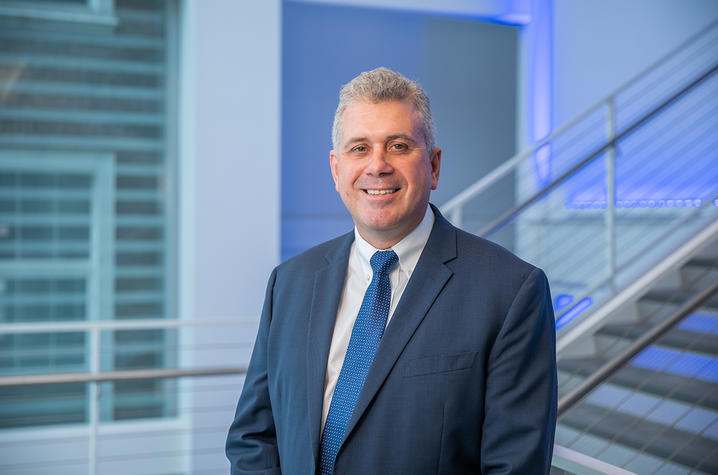Op-ed: UK Creating New Engineering Tracks to Meet Kentucky's Talent Demand

LEXINGTON, Ky. (June 1, 2020) — Earlier this month, the Kentucky Council on Postsecondary Education (CPE) released results of a study assessing engineering workforce trends relative to the offerings and effectiveness of engineering programs of Kentucky schools, colleges and universities.
The study found that Kentucky engineering jobs are growing slightly faster than engineering jobs across the U.S., and that earnings for engineers are fairly competitive with regional states. This is good news for those aspiring to and training for the engineering profession and planning on practicing in Kentucky. Engineering programs across the commonwealth will move to fill tech force gaps as they have always done, but we expect to do more than that. We should be expected to do more than that.
For example, the increased prevalence of automation on the factory floor and the emergence of complex international supply chains has caused fundamental shifts in what engineers must know and be able to do to drive the manufacturing sector of our economy.
At the University of Kentucky, we have responded with an initiative to create Engineering Technology degree programs related to manufacturing and computer technology. The College of Engineering has partnered with the Gatton College of Business and Economics to launch graduate programs in supply chain engineering and supply chain management. To support the largest export sector in Kentucky, aerospace products and services, we are moving to launch bachelor’s, master’s and doctoral degree programs in aerospace engineering.
At a time when the world desperately seeks to develop capacity to manufacture personal protective equipment and disease testing supplies and reagents, the University of Kentucky is standing up a Biomedical Engineering program with a focus on product design.
Important as the CPE Study is for characterizing Kentucky workforce needs, we must realize that it characterizes only a portion of the demand for engineering talent and only a portion of what we, as educators and mentors, must do for our students.
Many of our graduates will only spend a portion of their professional career as practicing engineers. Because of their analytical and problem-solving skills, engineering graduates enter into management and leadership positions at high rates. It is a point of pride for the profession that one-third of Fortune 500 CEOs hold engineering degrees. Because of this phenomenon, we must provide formal and informal opportunities for leadership training across the curricular and co-curricular engineering experience. Some of our graduates will never make it to professional engineering practice, instead vectoring to professional training in medical school, entering the business and finance sectors, or striking out as entrepreneurs and business creators. For these individuals, the university engineering curriculum is a gateway. We must provide meaningful preparation for these rising professionals as well as those on more traditional trajectories.
There are tall challenges in preparing students for all of these eventualities in academic programs that must fit into 128 credit hours of instruction delivered in four or five calendar years. But we can make it work.
In the end, our programs all share one common thread: we relieve students of the belief that there are things they cannot do and replace it with problem-solving skills and the systems-level thinking needed to solve today’s challenges that we already know and tomorrow’s challenges that we haven’t yet imagined. We are up for those challenges.
As the state’s flagship, land-grant institution, the University of Kentucky exists to advance the Commonwealth. We do that by preparing the next generation of leaders — placing students at the heart of everything we do — and transforming the lives of Kentuckians through education, research and creative work, service and health care. We pride ourselves on being a catalyst for breakthroughs and a force for healing, a place where ingenuity unfolds. It's all made possible by our people — visionaries, disruptors and pioneers — who make up 200 academic programs, a $476.5 million research and development enterprise and a world-class medical center, all on one campus.




